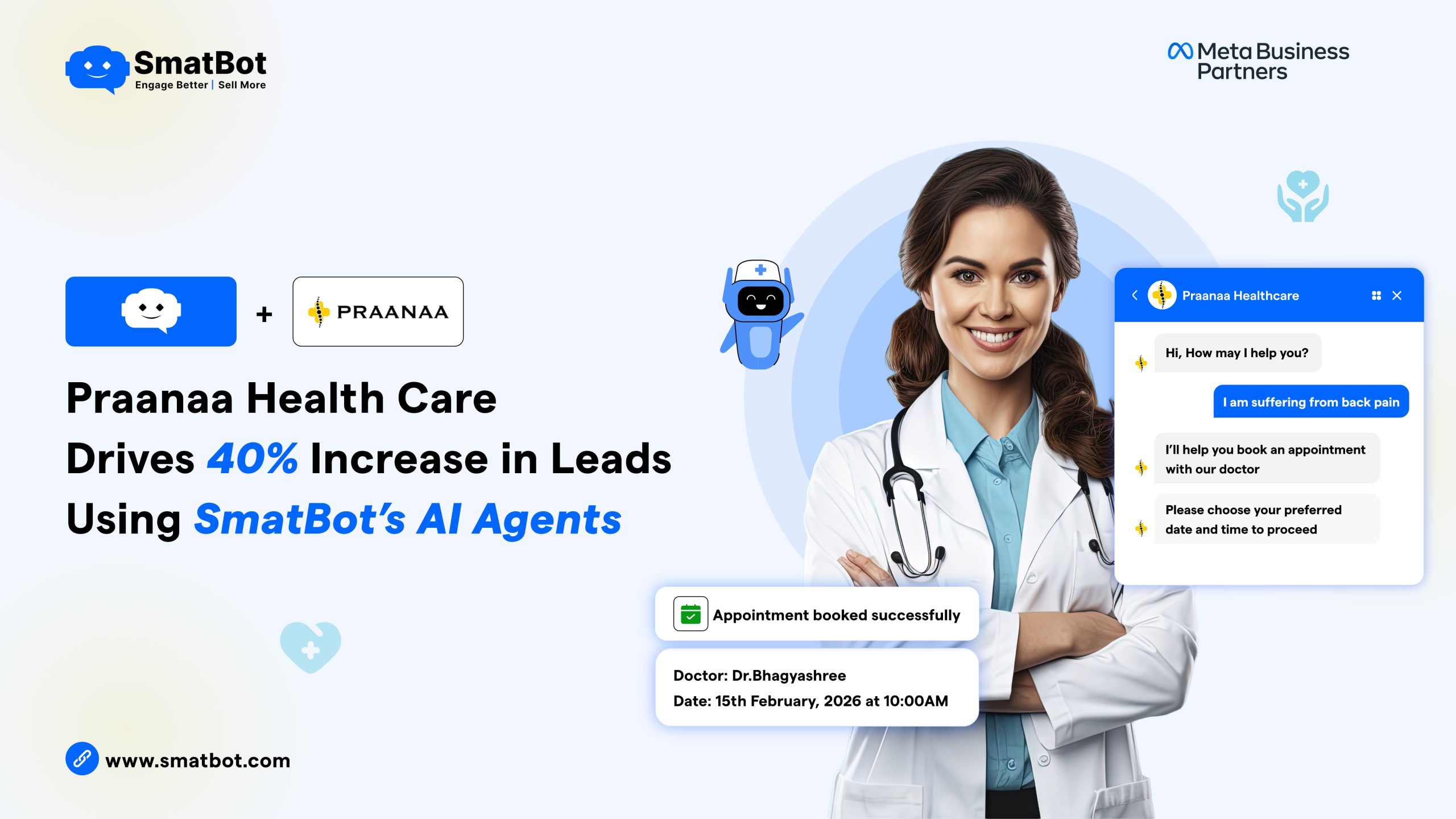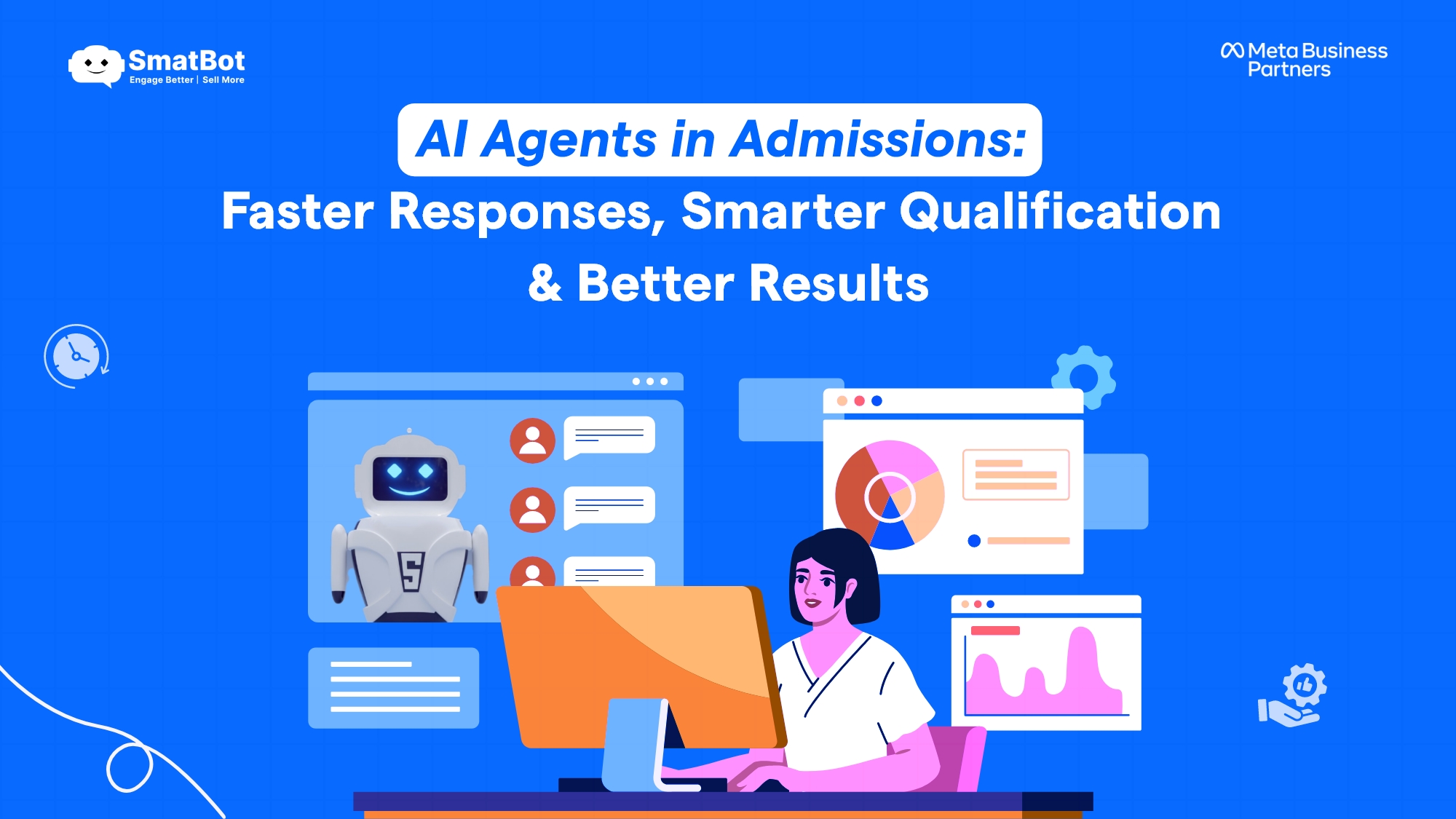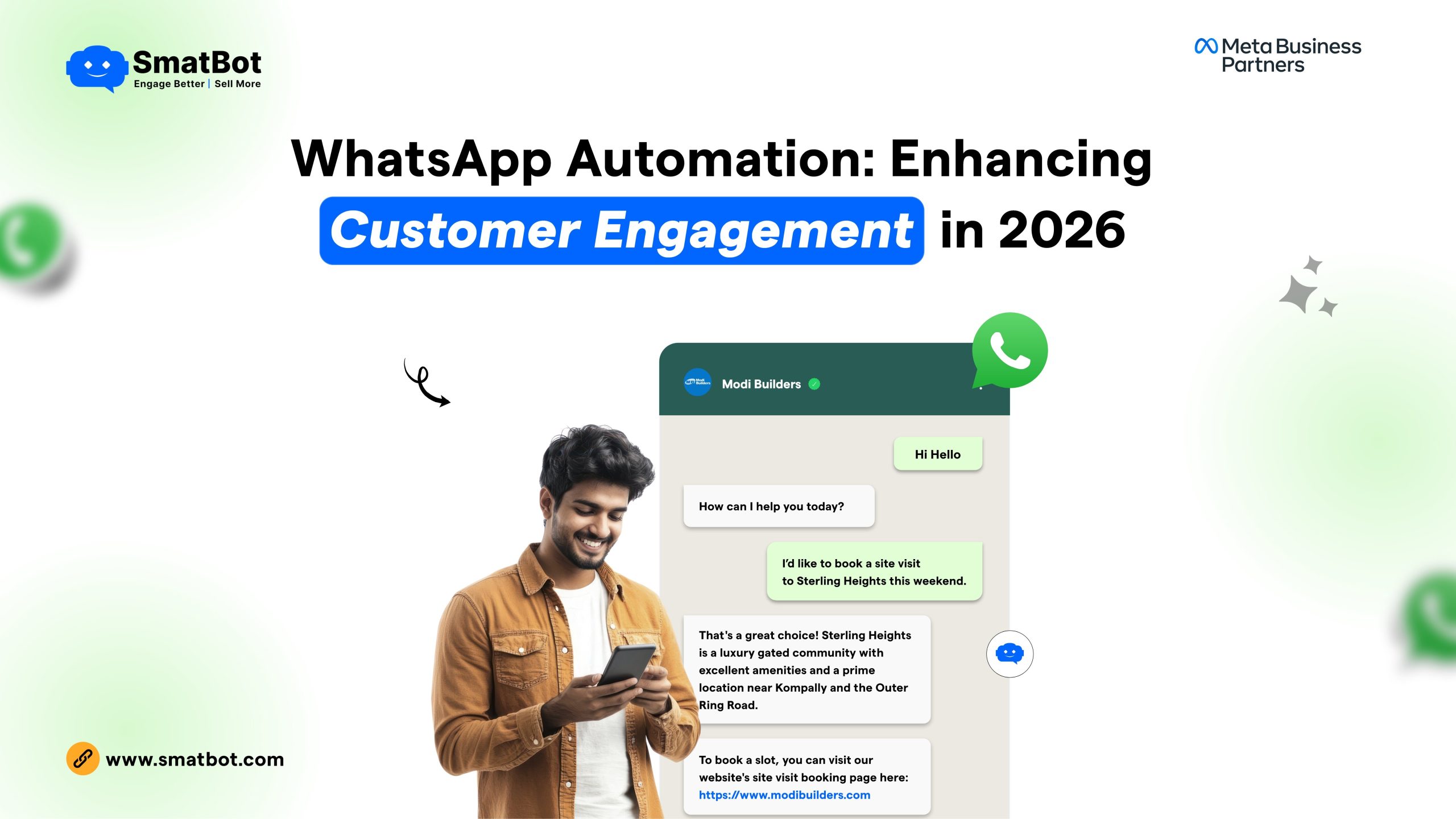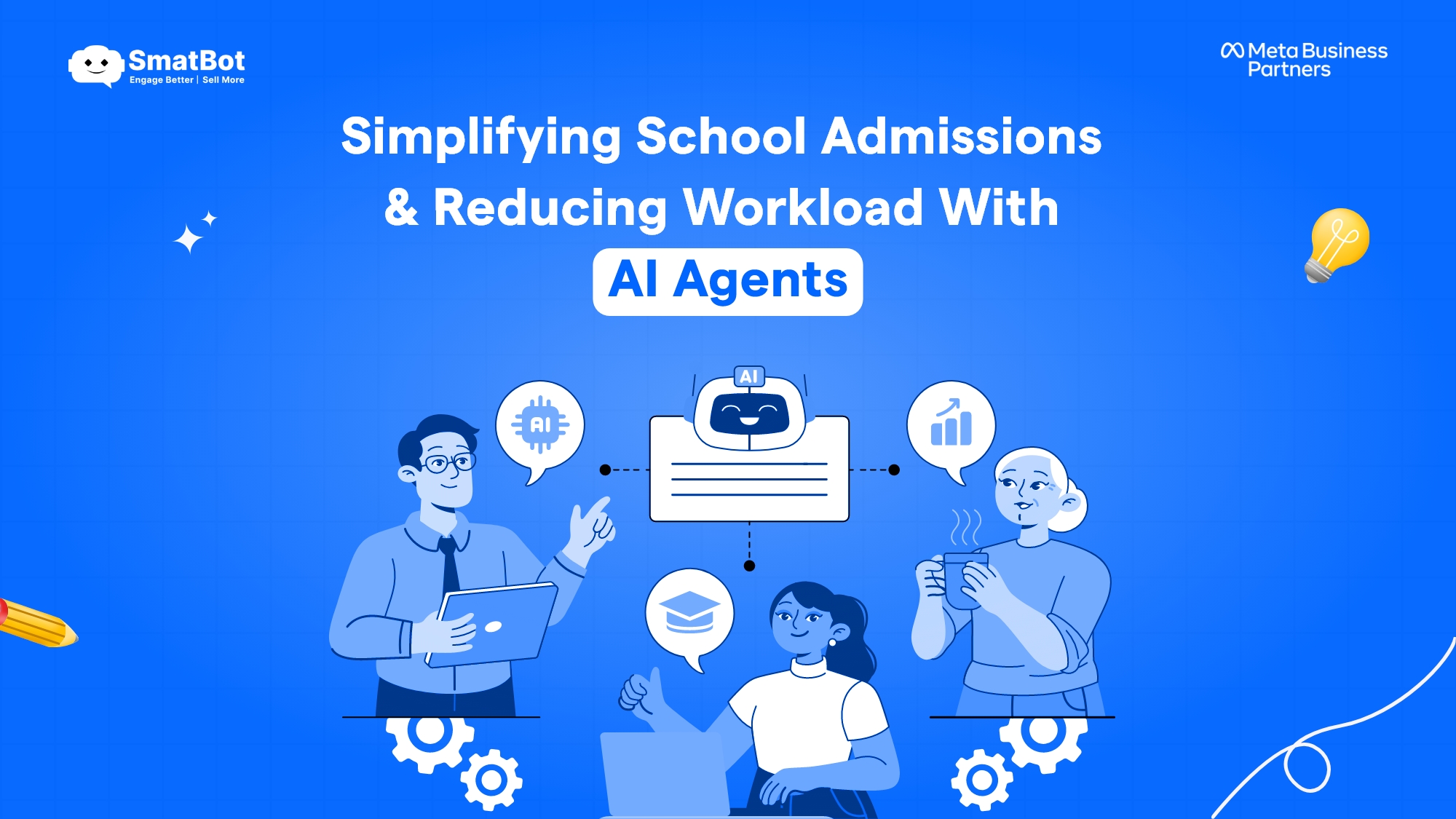AI Chatbots: Improving Customer Satisfaction and Retention
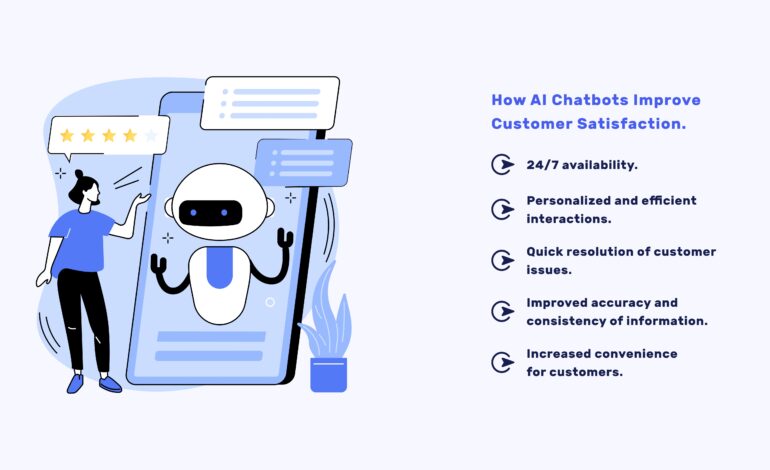
Did you know that customer service can be one of the most costly parts of running a business? Up to 80% of the tasks and inquiries handled by customer service are routine, and this can lead to costs that can reach as high as 25% of a business’s annual revenues. By implementing an AI chatbot, businesses can significantly reduce these costs.
Now, you might be wondering what exactly an AI chatbot is.
An AI chatbot is an AI-powered automated agent built to have realistic and human-like conversations with customers. They can be used to serve different tasks, such as customer service, booking and scheduling, lead generation, sales and marketing, etc. AI chatbots employ conversational AI technology to interpret and reply to client inquiries. The accuracy of the AI bot increases over time as and when it sees more data.
Now, let’s get a quick overview of how AI chatbots can impact customer satisfaction and retention.
AI chatbots have a huge impact on client satisfaction and retention. They serve clients with timely and accurate information, personalise interactions using machine learning, deep learning, and natural language processing (NLP), and reduce spending by addressing high volumes of requests simultaneously. By implementing AI chatbots, businesses can improve client interactions and satisfaction, increase customer retention rates, decrease churn rates, and ultimately boost their profits.
After learning about AI chatbots, we are sure you must be curious to learn more about them. Hence, to provide you with comprehensive detail about AI chatbots, we have prepared this guide. In this article, we will explore how AI chatbots improve customer satisfaction. Additionally, we will discuss the benefits of improved customer satisfaction for businesses. Finally, we will share some best practices for implementing AI chatbots.
So, let’s start.
How AI Chatbots Improve Customer Satisfaction?
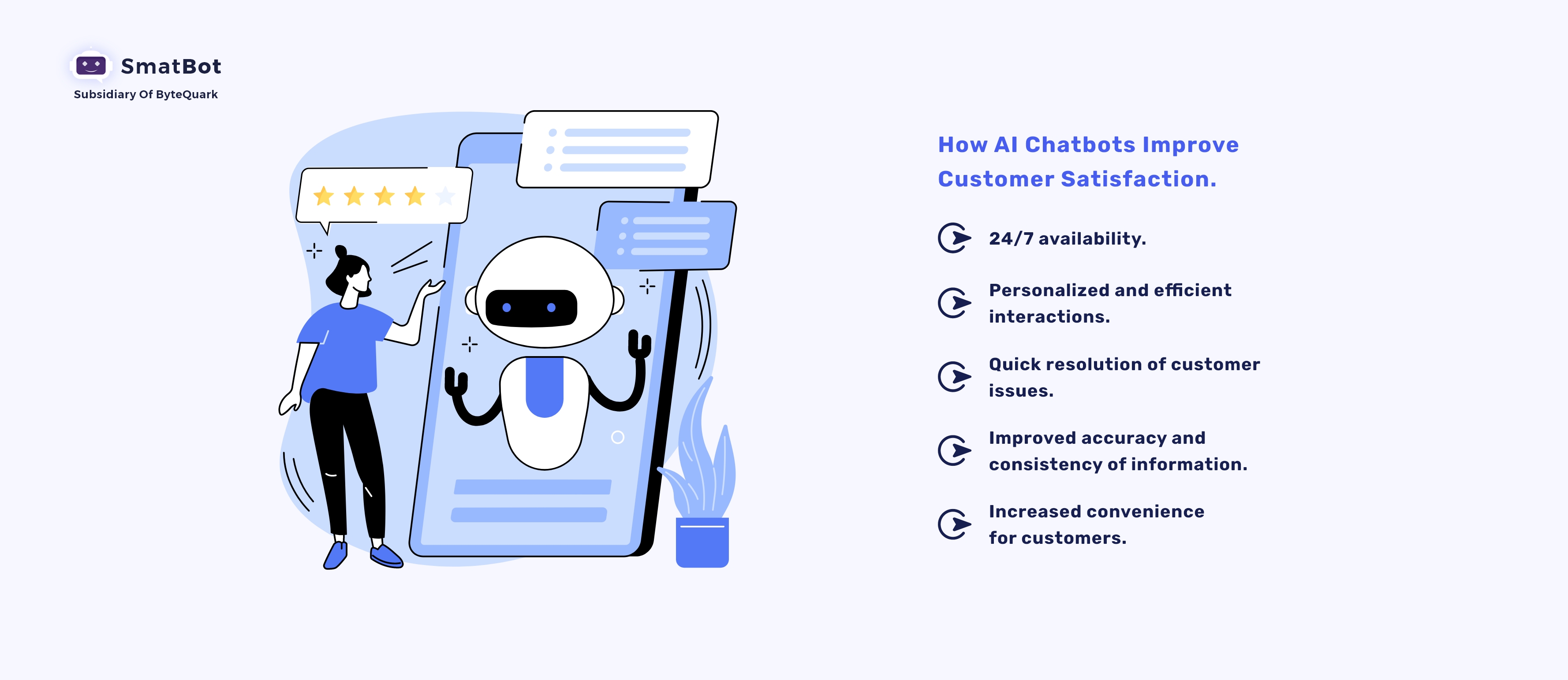
In this section, we will discuss some factors that will help you understand how these AI chatbots improve customer satisfaction.
- 24/7 availability
It’s time for your business to start using AI chatbots instead of outdated or traditional channels of communication like emails, phone calls, and live chats. The reason is that customers expect immediate responses, even outside of business hours, and slow response times might hurt your brand’s reputation. AI chatbots are available 24/7 and can provide quick and relevant answers, increasing the likelihood of turning visitors into potential customers.
- Personalized and efficient interactions
Personalization is one of the major reasons for opting for AI chatbots. It will help you stand out from the competition since it allows you to get to know your customers better, have a clear understanding of their needs, and tailor your offers to meet their demands.
AI systems, such as deep learning and machine learning, can identify frequent customer problems and even provide insight into what’s troubling customers. Leveraging this insight to deploy AI chatbots at certain client interactions will assist your company in personalizing real-time customer interactions while being responsive. The goal of chatbots is to always be one step ahead, providing a seamless and personalized customer experience and addressing any problems before they arise.
- Quick resolution of customer issues
Consumers always want quick responses when they reach out to customer service support. Therefore, customer support agents must be proactive in addressing each customer’s unique issue by providing relevant information and effective responses. Yet, a lack of coordination and a heavy workload might cause delays. Businesses can leverage AI chatbots to quickly solve common issues and even fetch relevant information to assist live chat operators in solving complex problems. This expedites the resolution process and makes clients feel more satisfied.
- Improved accuracy and consistency of information
AI chatbots can provide your customers with a consistent user experience. You have complete control over the voice, tone, and terminology used in your bot’s responses, preventing inconsistencies. AI assures accuracy, preventing missed chats or emails from falling into spam folders. This minimizes communication errors, ensuring that your customers receive accurate and consistent information.
- Increased convenience for customers
The AI chatbot is a convenient tool that is always available to help and support users across a wide range of apps and platforms. It may integrate with a variety of platforms, including WhatsApp, Instagram and Facebook, giving customers the option to prefer their most convenient channel for communicating. Customers may interact with the chatbot in a way that meets their preferences, making it simpler for them to get the help and assistance they require.
Moreover, these AI chatbots are made to offer quick and effective replies, cutting down on the amount of time users must wait for assistance. In general, the AI chatbot is a trustworthy and efficient tool for boosting the customer experience, simplifying support procedures, and enhancing customer satisfaction.
Using an AI chatbot platform like SmatBot can help businesses take advantage of the benefits mentioned above. SmatBot is the top-ranked AI chatbot platform, offering AI-driven, Omni-Channel, and Multilingual capabilities that enable users to build an AI chatbot from scratch within minutes. The best part is that SmatBot is a no-code platform, so you don’t need any coding skills to get started.
To know more about our new features and how they can be helpful for you, book a quick 15-minute demo with us.
Benefits of Improved Customer Satisfaction for Businesses
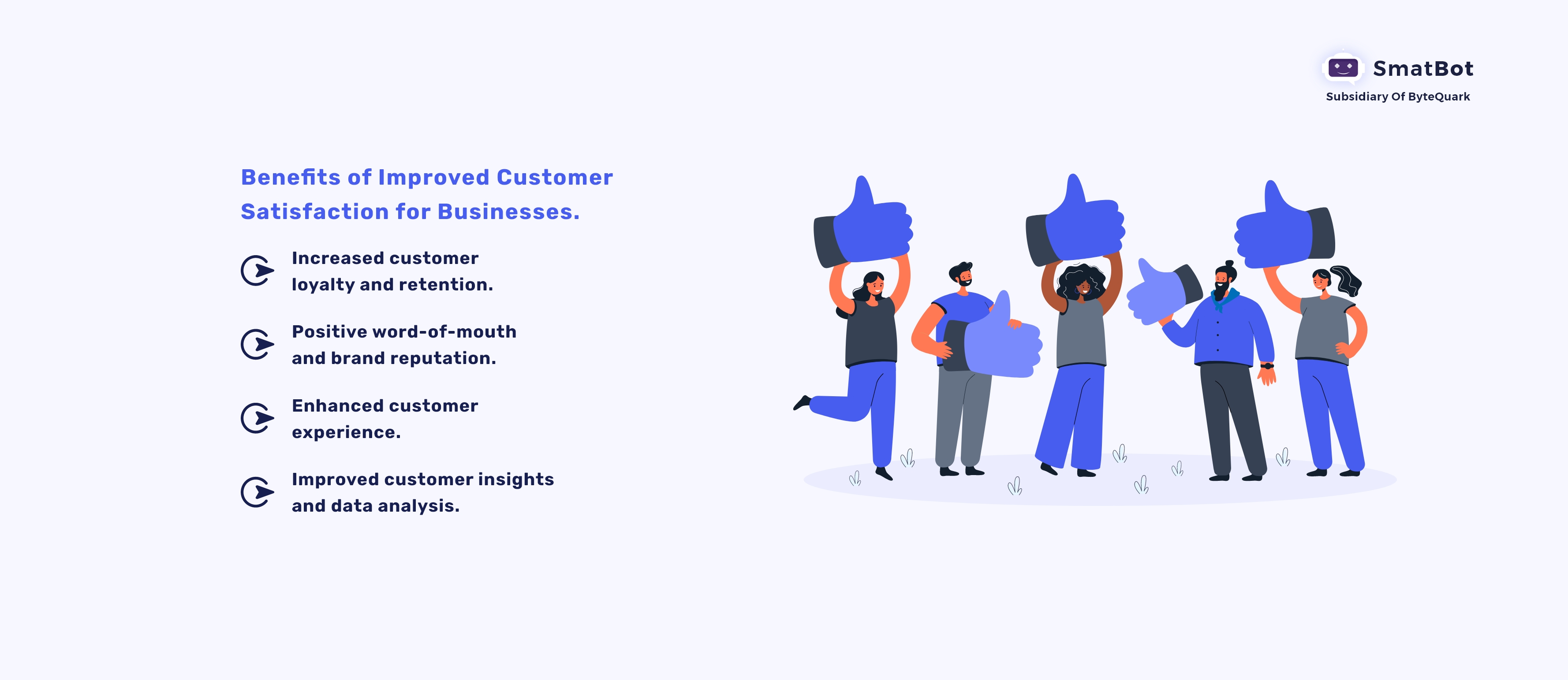
There are many benefits of improved customer satisfaction for businesses, and we are highlighting some of them below:
- Increased customer loyalty and retention
When your clients are happy, they trust your brand and stay loyal to it. These loyal clients are a big source of profit for businesses and encourage repeat business. In other words, customers who are satisfied with a product or service are more likely to return, which is wonderful for growing sales and preserving long-term success.
Consumer loyalty may assist organizations in cultivating repeat business and building a client base on which they can rely month after month. Since they trust your company, repeat consumers are more likely to spend more money on your product or service than new customers. Customer retention is approximately five times less expensive than client acquisition.
- Positive word-of-mouth and brand reputation
Word-of-mouth advertising is incredibly effective. According to Nielsen, 92% of customers are more likely to trust recommendations from family and friends than advertisements. Your best brand ambassadors are your happy customers. Their positive word-of-mouth promotes your brand, increases its reputation, and helps you acquire new clients. This helps brands avoid spending a lot of money on advertising and promotional activities that aim to bring in new clients.
- Enhanced customer experience
Customer satisfaction is key to an enhanced user experience since it makes them feel more comfortable using your products or services and increases their chances of using your products or purchasing other products in the future. But, if your customers have a bad first impression, they might not return to your website again, which can harm your business or brand reputation.
- Improved customer insights and data analysis
Customer insights and data analysis can benefit from improved customer satisfaction since satisfied clients are more inclined to submit feedback, offer suggestions, and interact with a brand. Furthermore, satisfied clients are more inclined to remain loyal to a brand, offering businesses additional opportunities to collect data over time. Companies can get deeper insights into customer behaviour and preferences by evaluating this data. This information can then be used to shape product development, marketing campaigns, and customer service strategies.
Best Practices for Implementing AI Chatbots
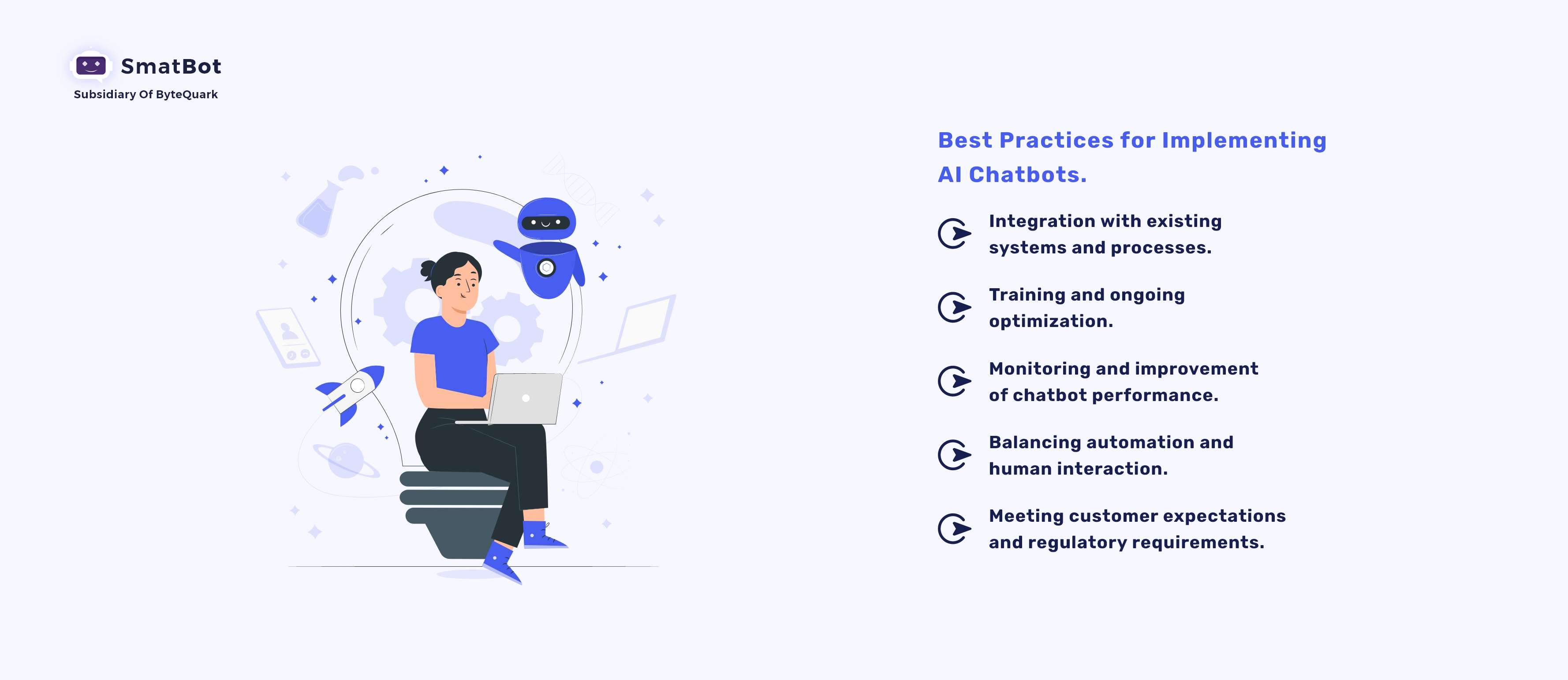
There are several best practices that you should consider while implementing AI chatbots:
- Integration with existing systems and processes
In order to deliver relevant and accurate information, AI chatbots need to be able to access and integrate with already-existing systems and processes. In addition, existing processes must be customised to work seamlessly with these chatbots.
- Training and ongoing optimization
AI chatbots must be trained in order to comprehend and process natural language and deliver efficient customer support. To ensure that the chatbot’s replies are correct and relevant, ongoing optimization is required for it to respond to the latest data and user behaviour. Without ongoing optimization, the chatbot’s effectiveness might decline, resulting in customer dissatisfaction.
- Monitoring and improvement of chatbot performance
After training your AI chatbot properly, you must monitor its performance to make any necessary improvements over time. Regular monitoring of AI chatbot performance can help uncover any errors and give insights for future improvement. The performance indicators include resolution rate, response time, and customer satisfaction ratings. Further, this will keep your chatbot updated with the latest technological advancements, increasing the likelihood that people will engage with it as much as possible.
- Balancing automation and human interaction
Finding the ideal mix of automated replies and human involvement is key to achieving automation and human interaction balance and delivering the highest overall customer experience. While automation can deliver quick and effective solutions, it might not always be capable of dealing with complicated problems or offering the personalized service that certain clients may need. Such scenarios may require human involvement, although common tasks can be handled by automation.
- Meeting customer expectations and regulatory requirements
It’s important to make sure that the chatbot’s replies meet both regulatory standards and client expectations. Customers expect prompt, accurate, and relevant replies from chatbots; and failing to do so may result in dissatisfaction. The AI chatbot must adhere to regulatory requirements, which may include data privacy regulations and other applicable laws. Following these guidelines can promote customer trust and keep businesses out of legal trouble.
Final Thoughts
AI chatbots have completely changed how companies communicate with their customers, providing faster, more efficient, and personalized support that suits the needs of modern consumers. As a result, they’ve become a must-have tool for companies looking to improve customer satisfaction and retention.
SmatBot stands out among the best AI-powered chatbot platforms for its AI-driven, Omni-Channel, and Multilingual capabilities, which allow users to build a chatbot tailored to their individual demands in minutes. With SmatBot, businesses can stay ahead of the curve and provide excellent customer experiences without requiring coding skills or deep technical knowledge.

